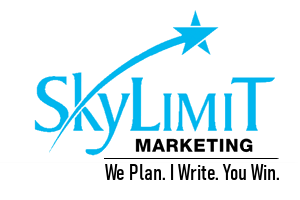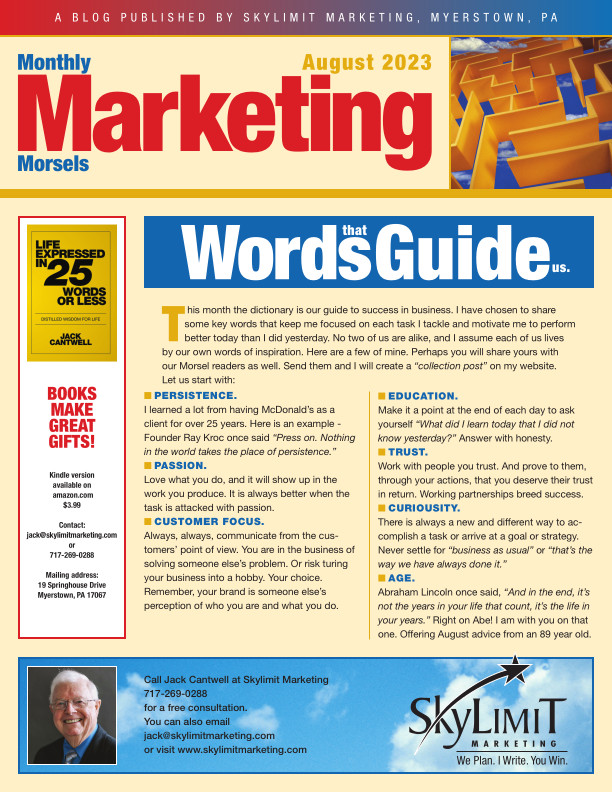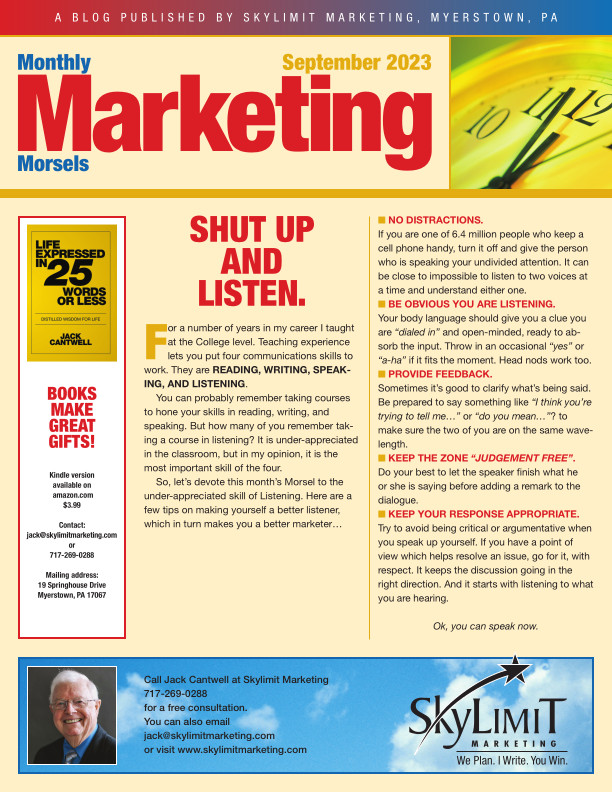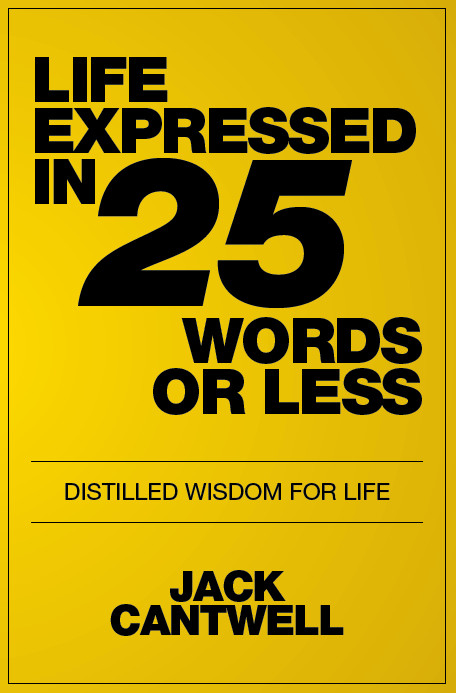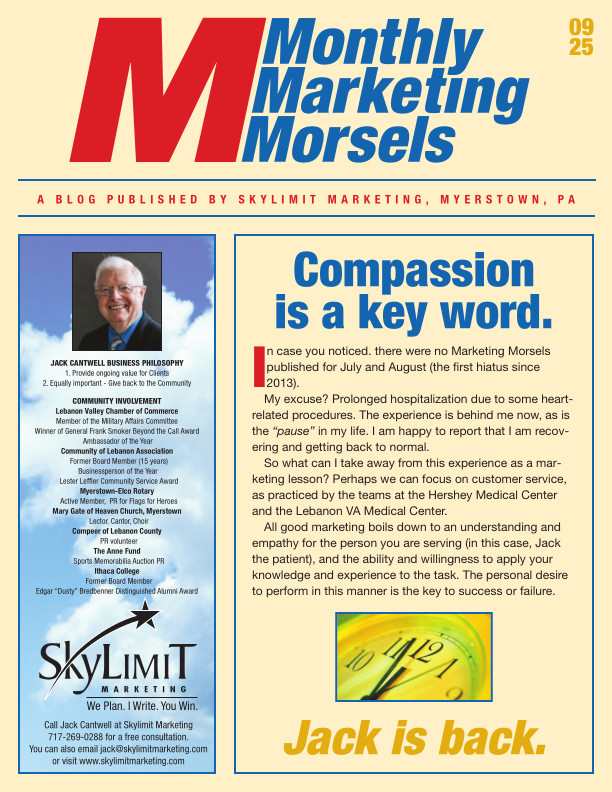Free Marketing Advice
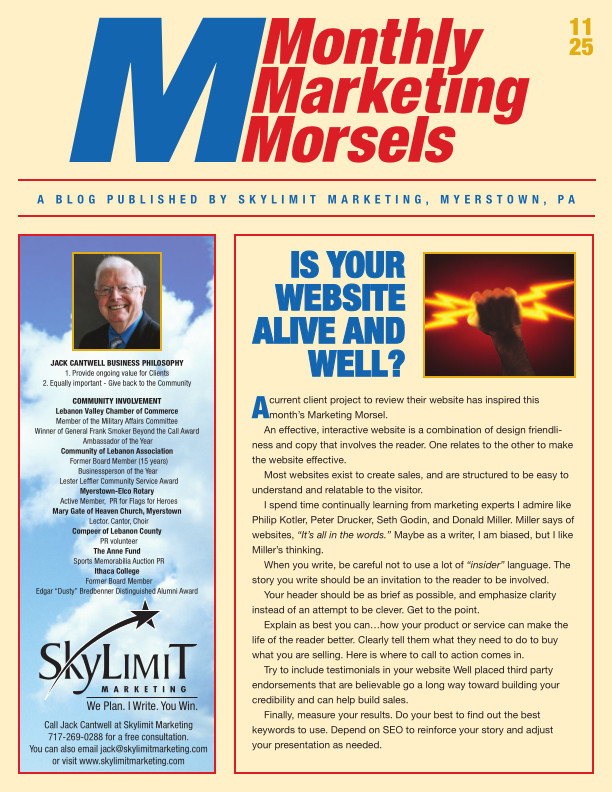
A current client project to review their website has inspired this month’s Marketing Morsel.

In case you noticed. there were no Marketing Morsels published for July and August (the first hiatus since 2013).

It’s July. Time to relax and not put a lot of strain on the brain. So let’s chat about one of my favorite marketing topics…BRAND IDENTITY

Throughout my lengthy career as a marketing professional, one of my favorite aspects has been bringing together two parties that are not in direct competition, share the same target audience, and discovering the benefit of jointly promoting to the benefit of both parties.

- Details
How do you sum up 91 years on earth, over sixty of them spent working on my craft?

- Details
This month I am reading an update of one of my favorite marketing books, Building a Story Brand.
